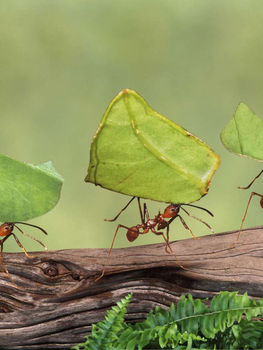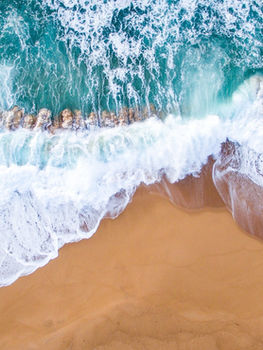Nature's Presence

Embracing Our Coastal Ecosystem
Welcome to your holiday home nestled by the ocean! Embrace the beauty of nature that surrounds us, including the diverse ecosystem of insects, monkeys and occasional snakes. Living in harmony with the coastal environment means sharing our space with these creatures.
We understand that encountering insects in the house can be unsettling, and we sincerely apologise for any inconvenience this may have caused during your stay. As you may be aware, all insects are part of the natural ecosystem, and despite our best efforts to maintain a clean and welcoming environment, their presence can be challenging to control entirely.
Why We Can't Guarantee a Rodent and Insect-Free Zone
Our proximity to the ocean brings a variety of insects that are integral to the local ecosystem. Despite our best efforts, it's impossible to completely eliminate them.
Our Commitment
We prioritise your comfort and well-being. Regular pest control measures are in place to minimise inconveniences, but we encourage guests to appreciate the unique environment we offer.
Tips for a Pleasant Stay
Keep doors and windows closed, especially during the evening.
Use provided screens to prevent insects from entering.
Notify us immediately if you encounter any unexpected guests, and our housekeeper team will address it promptly.
Appreciating Nature's Wonders
Take a moment to observe the diverse flora and fauna around. The occasional presence of insects and snakes is a reminder that you're immersed in a vibrant ecosystem.
Thank you for understanding and joining us in cherishing the natural wonders of our coastal home. If you have any concerns or questions, feel free to reach out to our team.
Snakes
South Africa is home to a wide array of snakes, with KwaZulu-Natal being the most species-rich province.
At least 25 species of snake can be found in the Greater Durban Area, 12 of which are venomous. In addition to the black mamba, a lucky herpetologist may be able to find several other infamous snake species in the Durban area, including the Mozambique spitting cobra, boomslang, and puff adder
Night adders and Herold snakes get attracted to houses that have outside lights on at night. Insects get attracted to the lights which become an easy source of food for frogs. The frogs in then become 'take aways' for the snakes.
WHAT TO DO WHEN YOU SEE A SNAKE:
Leave it alone
Keep your distance. Snakes are generally shy and will not attack unless provoked, so it's best to leave them be.
If you see a snake inside your home, get all people and pets out of the room immediately. Shut the door and fill the gap underneath with a towel, then call a professional snake catcher for assistance.
Never attempt to catch or scare the snake
Most snakes only attack when agitated or provoked. If you attempt to capture a snake, chances are that it will act defensive and bite in retaliation so it’s best to steer clear. Moreover, not everyone can identify venomous snakes from non-venomous ones so why risk the odds?
Keep an eye on its movement
If you see a snake outside, carefully observe where it goes. If it’s heading for the bush or an open paddock you probably won’t see it again. If it enters your house or goes into a shed or under a vehicle, immediately let the authorities know.
Call for help
When you spot a snake do not attempt to take matters into your own hands. The best thing to do is contact wildlife experts and wait for them to arrive. Describe the snake in detail over the phone or try and send a picture so they can guide you accordingly.
Ballito Snake Catchers: Neville: +27825614969 or Samantha: +27723168178
Ants
Ants are one of the most common pests found in KZN. There are several known ant species and they occur throughout all seasons.
Preventative means are probably the best way to stop ants intruding into the home. Keeping a clean house, cleaning up any spills straight away, and cleaning down food preparation areas will help.
Remove any rotten fruit or vegetables, and keep sugar based products such as jams and cakes out of reach in sealed containers.
Natural products such as salt, turmeric powder or paprika sprinkled around known points of entry can deter ants.
Household insecticides can be applied around the entry points, and also around the nest in the garden if located. Yet with the sheer quantity of ants and the low dosages of these insecticides this may well prove to be a short term solution.
Do not leave food out and open on counters for any length of time, and ensure no traces of anything sweet or sticky is left on surfaces i.e. spilled cooldrinks, crumbs etc that could attract the ants.
Another very well know flying ants are called rysmiere, literally “rice ants,” although their name is more commonly rendered into English as “white ants.” They are not ants, though; they're not even closely related to the ants. In fact, their nearest insect relatives are cockroaches: they are termites, however, harmless.
Vervet Monkeys
One mammalian species thriving in the urban forest mosaic landscape is the vervet monkey (Chlorocebus pygerythrus), particularly in Durban, eThekwini Municipality, KwaZulu-Natal Province, South Africa.
Vervet monkeys, people either hate them or love them. The truth is, we depend on them and MUST learn to live with them, but Vervets must remain wild. Vervet monkeys are protected by both national and provincial legislation and injuring or killing them is a punishable offence. They are NOT VERMIN.
Adult males were most aggressive during intergroup encounters with groups from which males transferred. In contrast, females were most aggressive to groups from which males were not observed to transfer.
What to do if you are attacked?
Do not run away or show fear – this will just tell the monkey that you are inferior and their aggression could intensify. Back away slowly, don't turn your back on the monkey but do avoid making eye contact. Show the monkey that you are not holding anything in your hands.
Vervet monkeys are highly adaptable primates that forage the grasslands and trees during the day and sleep in trees at night.
Do Not Feed the Monkeys!
Under any circumstances whatsoever do not feed the monkeys - mother or babies!
Please be aware of the monkeys they are inquisitive and can get very aggressive. Don’t leave fruit out within sight of the monkeys – they will come in, make a mess, panic and break things. Close all windows and doors when leaving the house.
Mosquitos
They are a major pest during the rainy season in KZN. They breed in any area where there is standing water, and during the day hide in dark places e.g. under tables and chairs. Mosquitoes are attracted to water, particularly stagnant water that’s because mosquitoes tend to gather wherever there’s water.
The risk for mosquito activity is extremely high throughout the year in the Dolphin Coast. Anopheline mosquitoes are active as dusk falls and throughout the night. Wear long-sleeved shirts and pants when spending time outdoors to prevent bites. Durban area is not a malaria risk are.
Cockroaches
Roaches are resilient and extremely hard to get rid of. Roaches can remain active year-round especially nearby the ocean, although they are more prevalent in the spring and summer months.
The three species of cockroaches commonly found in South African homes are the German cockroach, the Australian cockroach and the American cockroach, all of which prefer warm, moist areas.
We understand that encountering insects in the house can be unsettling, and we sincerely apologise for any inconvenience this may have caused during your stay. As you may be aware, all insects are part of the natural ecosystem, and despite our best efforts to maintain a clean and welcoming environment, their presence can be challenging to control entirely.
Mice
Being situated so close to the beach and surrounded by natural vegetation means our homes are nestled in an environment rich in wildlife—including small animals such as mice, which are occasionally drawn indoors, especially during cooler months or after heavy rains.
While we do take every precaution to maintain the highest standards of cleanliness and pest control, the natural surroundings and open design of beach homes make it difficult to completely prevent the occasional appearance of a mouse. This is not a reflection of cleanliness, but rather a natural occurrence in coastal settings where homes are in close contact with surrounding dunes, bush, and wildlife corridors.
We understand this can be unsettling, and we are here to assist if needed. Please let us know if you do spot anything, and we’ll respond promptly.
Thank you for your understanding and for helping us protect and live in harmony with our coastal environment.












